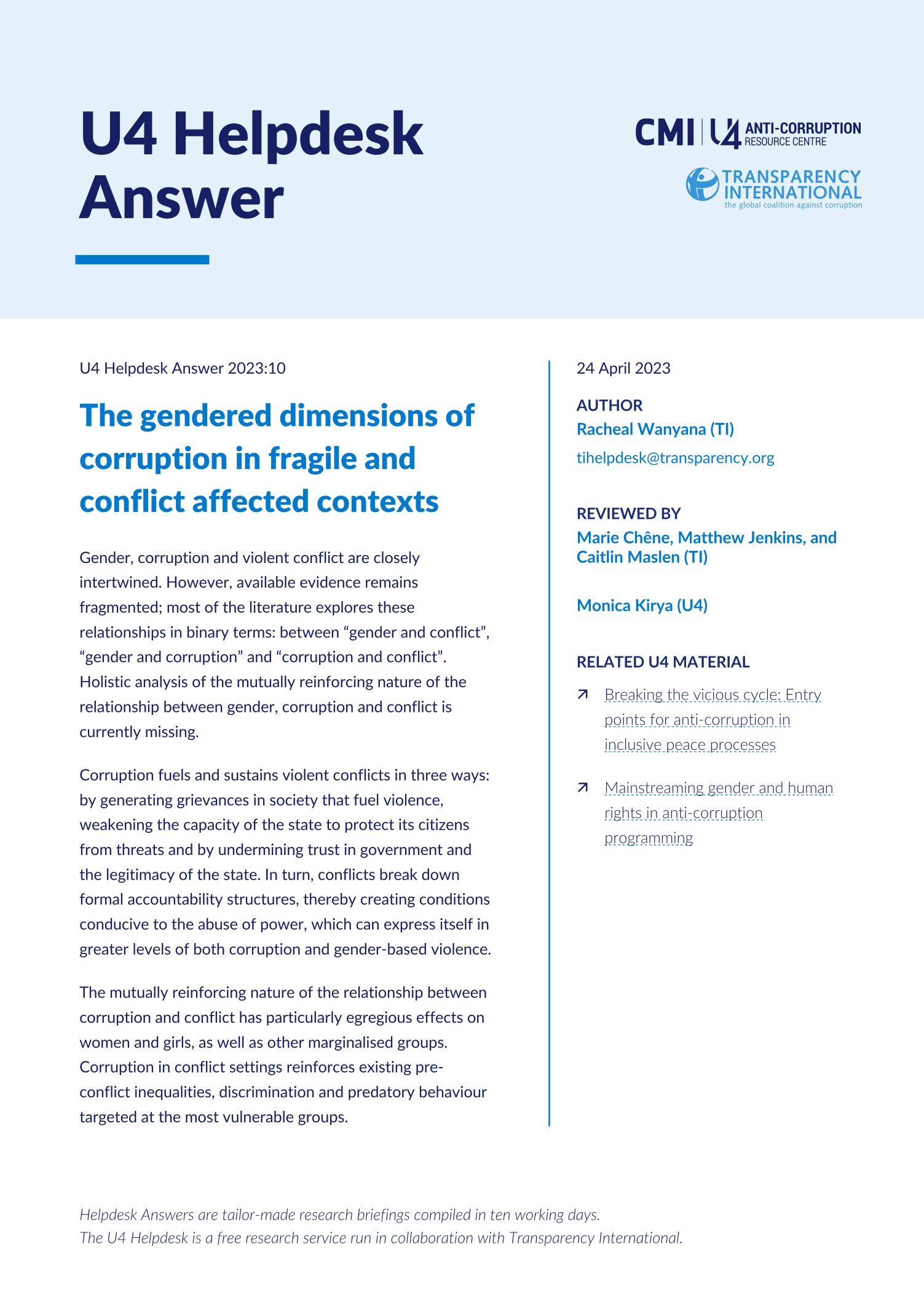Main points
- Conflict exacerbates the discriminatory and disproportionate impact of corruption on women, girls and other marginalised population groups.
- Lower constraints on the abuse of power in conflict affected countries appears correlated with a rise in practices such as sextortion and survival sex, as well as forms of petty corruption such as bribery and extortion that have a disproportionate impact on women and girls.
- Corruption in post-conflict relief and recovery also has an unequal impact on women and other population groups who tend to be more reliant on public services and as such are more affected by the poor availability and quality of public goods (Transparency International 2019). Corruption that undermines post-conflict reconstruction can deprive women of equitable access to vital services such as healthcare, education, and water and sanitation.
- Post-conflict transitional justice is an important component of peacebuilding, but gender discrimination against women and girls raises additional barriers that prevent women and girls who have fallen victim to corruption or gender-based violence from seeking justice.
